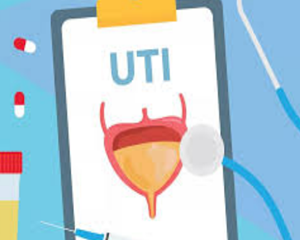Avoiding a UTI -- foodborne or otherwise -- begins with good hygiene.
避免尿路感染(食源性或其他原因)首先要维持良好的卫生习惯。
Because of the contamination danger, one important step is to take precautions when handling any meat products -- specifically, chicken, turkey, and pork as they are more commonly associated with E. coli-related infections.
由于污染危险,重要的一步是在处理任何肉类产品时采取预防措施,特别是鸡肉、火鸡和猪肉,因为它们更常见与大肠杆菌相关的感染。
Safe handling practices included washing hands frequently with soap and warm water for at least 20 seconds, cleaning and sanitizing food preparation areas and utensils after each use, and cooking meat to a safe temperature.
安全处理做法包括经常用肥皂和温水洗手至少20秒,每次使用后清洁和消毒食品准备区域和器具,以及将肉类烹饪到安全温度。
Liu says you can also reduce your exposure to drug-resistant E. coli by choosing to buy meats that are labeled as "USDA Organic," "Raised Without Antibiotics," "Animal Welfare Approved," "American Grassfed," or "No Antibiotics Ever."
刘说,你还可以通过选择购买标有“美国农业部有机”、“无抗生素饲养”、“动物福利批准”、“美国草饲”或“无抗生素”标签的肉类来减少与抗药性大肠杆菌的接触。

To avoid other causes of urinary tract infections, Comiter suggests frequent handwashing, wiping from front to back after going to the bathroom, drinking adequate amounts of water, and urinating after sex as "efficacious ways to minimize the risk of infection."
为了避免其他原因引起的尿路感染,科米特建议经常洗手、上厕所后从前往后擦拭、喝足量的水以及性交后排尿,作为“最大限度降低感染风险的有效方法”。
When it comes to avoiding the worst outcomes of UTIs, he says, it's best to see your physician if you notice any concerning symptoms of infection or if symptoms seem to worsen.
他说,为了避免尿路感染的最坏结果,如果你发现任何有关感染的症状或症状似乎恶化,最好去看医生。
"If there is a fever or changes in mental status -- which is more common in the elderly," he explains, "then a more serious infection may be occurring, which may require hospitalization and a longer course of treatment."
“如果发烧或精神状态发生变化--这在老年人中更为常见,”他解释说,“那么可能会发生更严重的感染,这可能需要住院治疗和更长的疗程。”
With proper precautions and care, Lazarus notes, the worst outcomes of urinary tract infections can often be avoided: "UTIs are quite treatable if diagnosed early."
拉扎勒斯指出,通过适当的预防和护理,尿路感染最糟糕的结果通常可以避免:“如果及早诊断,尿路感染是可以治疗的。”













